Disclosure: This article contains affiliate links. We may earn a commission from purchases at no extra cost to you, which helps our travel content.
As someone who's spent years documenting the delicate balance between preserving history and protecting our natural world, I find few destinations as compelling as Butare (now officially Huye). This intellectual heart of Rwanda captivated me from the moment I stepped off the bus from Kigali, trading the capital's bustling energy for Butare's thoughtful pace. While my travels typically gravitate toward coastal Mediterranean towns or Scottish castles, Rwanda's cultural center offered something profoundly different—a place where the weight of history meets vibrant academic life and forward-looking optimism. For students seeking to understand Rwanda beyond the headlines, Butare provides an accessible weekend immersion into the country's rich heritage, innovative spirit, and warm hospitality. Join me as we explore this underrated gem where Rwanda's past, present, and future converge in fascinating ways.
Discovering the National Museum of Rwanda
My journey through Butare properly began at the National Museum of Rwanda (Ethnographic Museum), housed in a striking modernist building gifted by Belgium in 1989. While I typically find myself sketching medieval castle ramparts in my travel journal, here I was completely absorbed by one of Africa's most compelling cultural collections.
The museum unfolds Rwanda's story chronologically, from geological formation to contemporary society. What struck me most was the exquisite craftsmanship displayed throughout—intricately woven baskets (agaseke) whose patterns tell stories, musical instruments I later heard played by local musicians, and traditional royal dwellings reconstructed with painstaking attention to detail.
Unlike many museums that keep visitors at a respectful distance, here I found myself engaged in conversation with knowledgeable guides—many being students from the nearby university—who shared insights no guidebook could provide. Alphonse, my guide, explained how certain basket patterns were exclusively reserved for royal use, while others communicated specific messages between families.
The museum's garden deserves special attention—a botanical journey through Rwanda's native plants with medicinal, cultural, and ecological significance. As someone who's documented marine conservation efforts across continents, I appreciated how the museum connects cultural preservation with environmental stewardship.
For photography enthusiasts, I'd recommend bringing a versatile lens to capture both detailed artifacts and the architectural elements of this remarkable building. The lighting inside presents challenges, but the staff is accommodating if you're respectful with your photography.
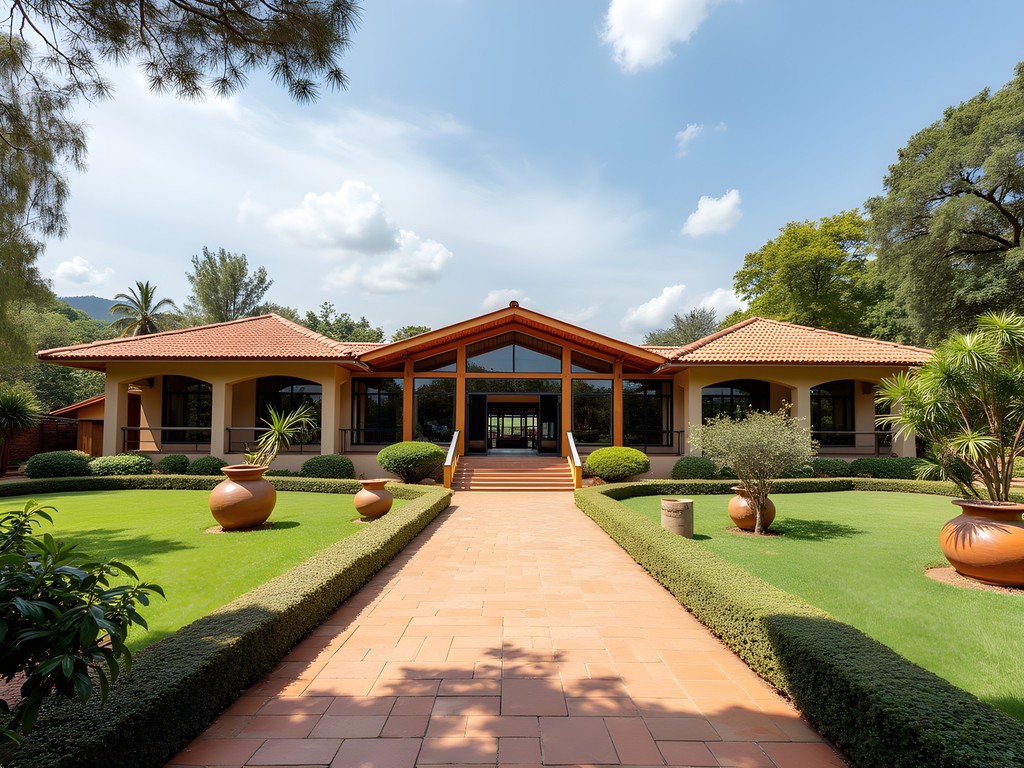
💡 Pro Tips
- Visit early morning (8-10am) to avoid school groups
- Hire a guide for deeper cultural context—student guides often offer fresh perspectives
- Allow at least 2-3 hours to properly appreciate the collections
Academic Atmosphere: Exploring the University of Rwanda
While Butare may not boast medieval castles like my beloved Italian countryside, it offers something equally fascinating—Rwanda's oldest and most prestigious university campus. The University of Rwanda's Huye Campus (formerly National University of Rwanda) pulses with intellectual energy that reminds me of my own college days in the States, yet with a distinctly Rwandan character.
Strolling through the campus on a Saturday morning, I was immediately struck by the juxtaposition of colonial-era architecture and modern facilities. Students gathered in animated discussion groups under sprawling trees, their conversations shifting seamlessly between Kinyarwanda, French, and English. When I paused to photograph a particularly beautiful jacaranda tree, two literature students invited me to join their impromptu poetry reading.
For visitors interested in Rwanda's educational development, the university library holds historical significance as a center of knowledge rebuilding after the 1994 genocide. While parts require academic credentials to access, the central reading room is occasionally open to visitors—its atmosphere of focused study providing a window into Rwanda's investment in its intellectual future.
The university cafeteria offers an authentic and budget-friendly lunch experience. For around 2,000 Rwandan Francs (roughly $2), I enjoyed a hearty plate of rice, beans, plantains, and stewed vegetables alongside students and professors. These casual interactions provided insights into contemporary Rwandan society no guidebook could offer.
The campus bookstore, though small, stocks academic texts on Rwandan history and development that you won't find elsewhere. I picked up a fascinating collection of essays on traditional conservation practices—drawing unexpected parallels to the marine preservation work I've documented in the Caribbean.
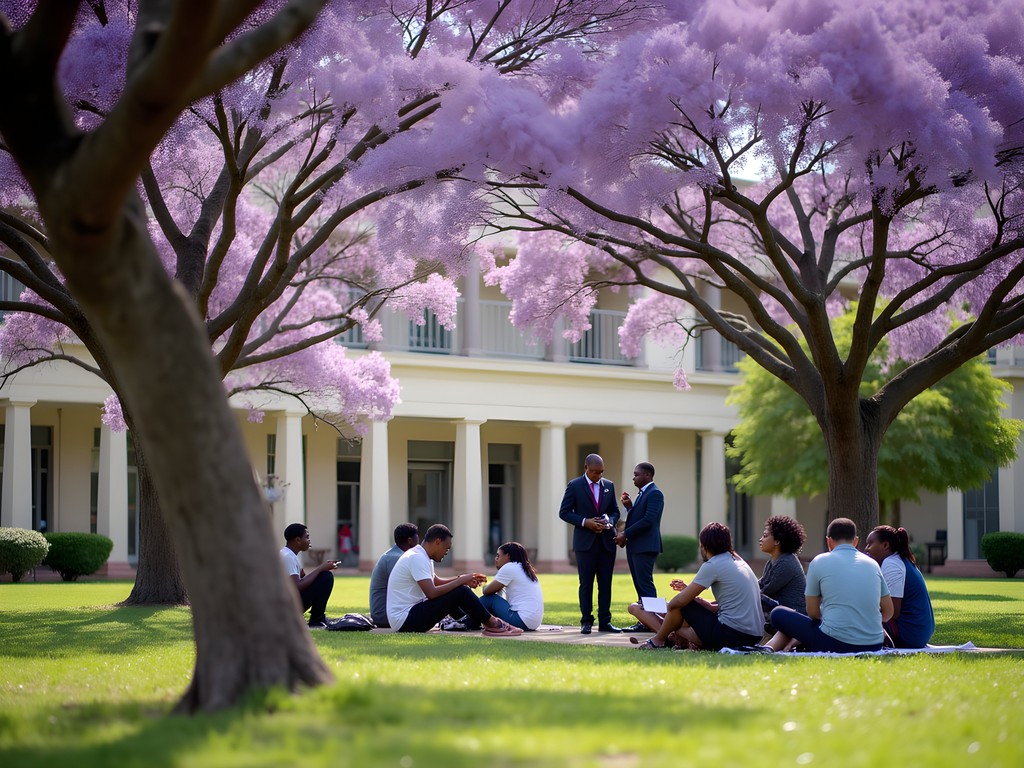
💡 Pro Tips
- Visit on weekdays during term time for the full academic atmosphere
- Respect classroom spaces and ongoing activities
- The campus coffee shop is an excellent spot for conversations with students
Cultural Immersion Through Craft Workshops
My most memorable experiences in Butare came through hands-on cultural workshops that connected me with local artisans. While I've sampled craft cocktails across continents, here I found myself learning to brew traditional sorghum beer (ikigage) under the patient guidance of Mama Josephine, whose family has preserved these techniques for generations.
The Nyanza Art Center, a short motorcycle taxi ride from the town center, offers immersive half-day workshops in traditional Rwandan crafts. I signed up for their basket weaving class (9,000 RWF, about $9) and spent a humbling morning learning the intricate patterns that have earned Rwandan baskets international recognition. My fingers, usually steady when sketching castle details or mixing the perfect negroni, fumbled with the sisal fibers as my instructor, Grace, demonstrated techniques passed down through generations.
What made these workshops special wasn't just learning new skills, but the conversations they facilitated. As we worked, Grace shared stories of how these traditional crafts supported her university education and how cooperative artisan groups have become vehicles for reconciliation in post-genocide Rwanda. These workshops offer students a chance to engage with Rwandan culture beyond the tourist experience.
For those interested in Rwanda's renowned coffee culture, I highly recommend the coffee workshop at Inzozi Nziza (Sweet Dreams), Rwanda's first all-women-owned ice cream shop. Here I learned the complete journey from bean to cup, culminating in a tasting session that rivaled any I've experienced in Italy. My travel journal quickly filled with notes on the distinctive flavor profiles of different Rwandan growing regions.
While photography is welcome in most workshops, I found myself setting aside my camera to fully engage with the craft experiences—sometimes the most meaningful travel moments aren't captured through a lens but through participation.
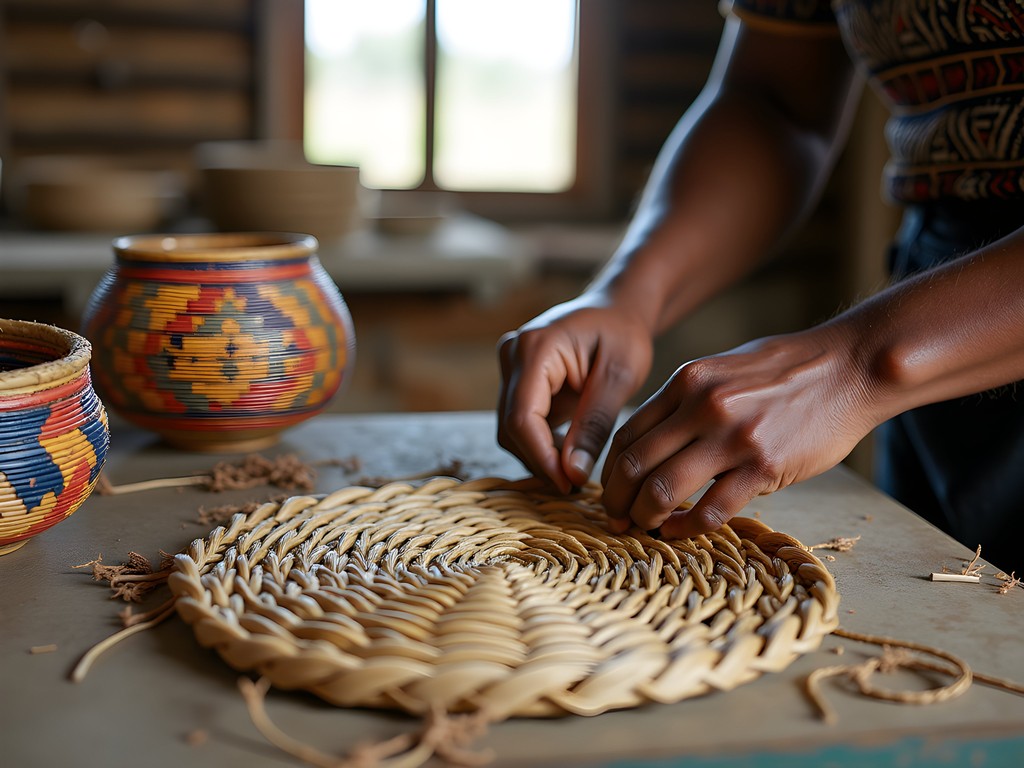
💡 Pro Tips
- Book workshops at least one day in advance through your accommodation
- Bring small denominations of Rwandan francs for purchasing crafts directly from artisans
- Wear clothes you don't mind getting dirty, especially for pottery workshops
Culinary Exploration: From Street Food to Rwandan Fine Dining
My travels have always been guided by flavor—whether sampling whisky in Scottish castle towns or discovering hidden trattorias in my native northern Italy. Butare's culinary landscape offers a fascinating window into Rwanda's cultural heritage and contemporary creativity.
Start your culinary exploration at Butare Central Market, where I spent a delightful morning wandering through stalls of fresh produce, spices, and street food. The market's sensory experience—vibrant colors, animated conversations, and enticing aromas—offers an authentic slice of daily Rwandan life. I recommend trying amaandazi (Rwandan doughnuts) fresh from sizzling oil, paired with sweet milk tea for a perfect mid-morning snack.
For lunch, Ibis Restaurant near the museum serves traditional Rwandan dishes in a garden setting. Their isombe (cassava leaves stewed with eggplant and spices) and igisafuria (a hearty beef and vegetable stew) provided a delicious introduction to Rwandan comfort food. At around 5,000 RWF ($5) for a generous plate, it's excellent value.
My unexpected culinary highlight came at Shokola Café, where Rwandan ingredients meet contemporary cooking techniques. Their coffee ceremony—performed tableside with beans roasted before your eyes—elevates the simple cup to a multi-sensory experience. I captured the process with my compact camera, which handles low light situations beautifully without being intrusive.
Don't miss the opportunity to try urwagwa (banana beer) at a local bar—I joined university students at Bar Faucon for an evening of lively conversation over this mildly fermented traditional drink. For just 800 RWF (less than $1), it's as much about the social experience as the beverage itself.
Vegetarians will find plenty of options, as traditional Rwandan cuisine features abundant plant-based dishes. The university area restaurants are particularly accommodating to dietary preferences, reflecting the diverse student population.
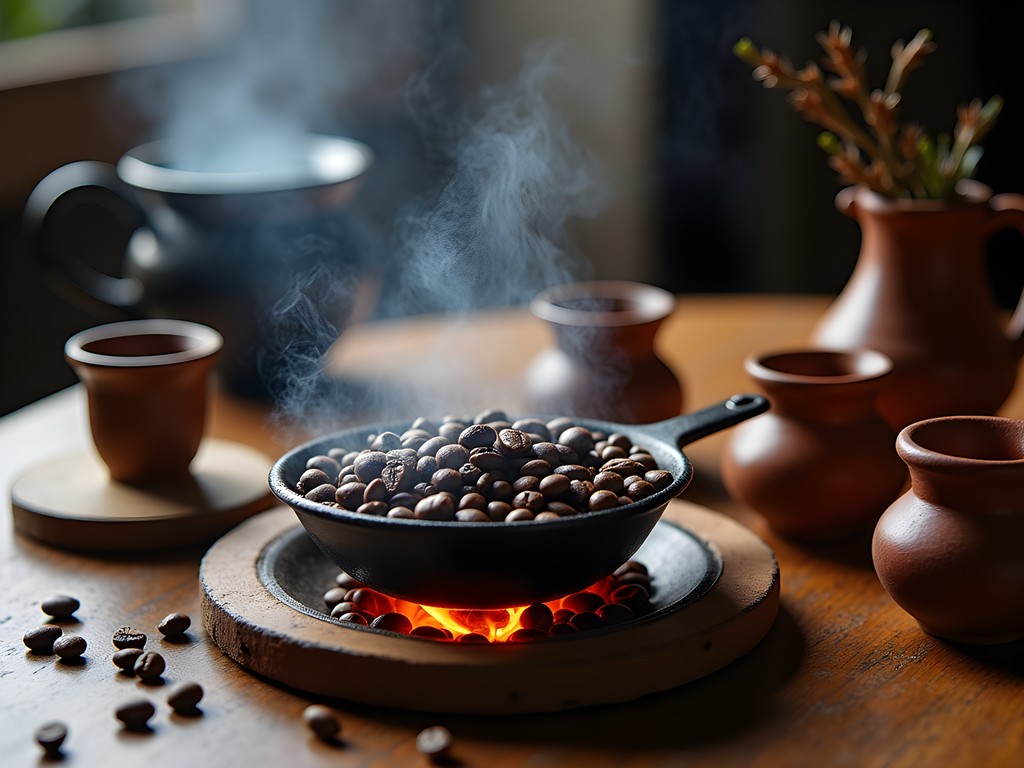
💡 Pro Tips
- Learn basic Kinyarwanda food terms to navigate markets and street food stalls
- Rwandan meals are typically served family-style—perfect for sharing and trying multiple dishes
- Coffee shops double as excellent workspaces if you need to catch up on studies
Day Trip to the King's Palace Museum in Nyanza
Just 30 minutes from Butare lies an experience that captivated my castle-loving heart—the meticulously reconstructed Royal Palace of Rwanda's traditional monarchy. The King's Palace Museum in Nyanza offers a fascinating glimpse into Rwanda's pre-colonial governance systems and royal traditions.
The journey itself is scenic, winding through Rwanda's famous hills dotted with banana groves and small villages. I hired a motorbike taxi for the round trip (8,000 RWF/$8), though shared taxis are available for budget travelers. The road conditions are good, making this an easy half-day excursion from Butare.
The museum complex features a traditional palace structure built entirely with historical techniques—no nails or modern materials. As someone who's documented countless European castles, I found the architectural ingenuity remarkable, particularly the intricate ceiling bindings and natural climate control systems.
The highlight for many visitors is the enclosure housing the royal cattle—Inyambo—with their distinctive enormous horns. These sacred animals were central to traditional Rwandan culture and economy. The caretakers demonstrate how these gentle giants were trained to respond to specific songs and praise poems—a practice maintained today as living heritage.
My guide, Emmanuel, brought the site to life with stories of royal rituals and daily palace life. I was particularly fascinated by the complex social codes embedded in everything from architectural details to the positioning of milk vessels. For students of anthropology or political science, the museum offers valuable insights into indigenous governance systems.
Be sure to bring your water bottle as the hilltop location can get quite warm, and facilities are limited. I filled mine at my guesthouse before leaving Butare, as staying hydrated while exploring the expansive grounds is essential.
While photography is permitted throughout most of the site, some ceremonial objects have restrictions. Always ask your guide before photographing specific items or people.
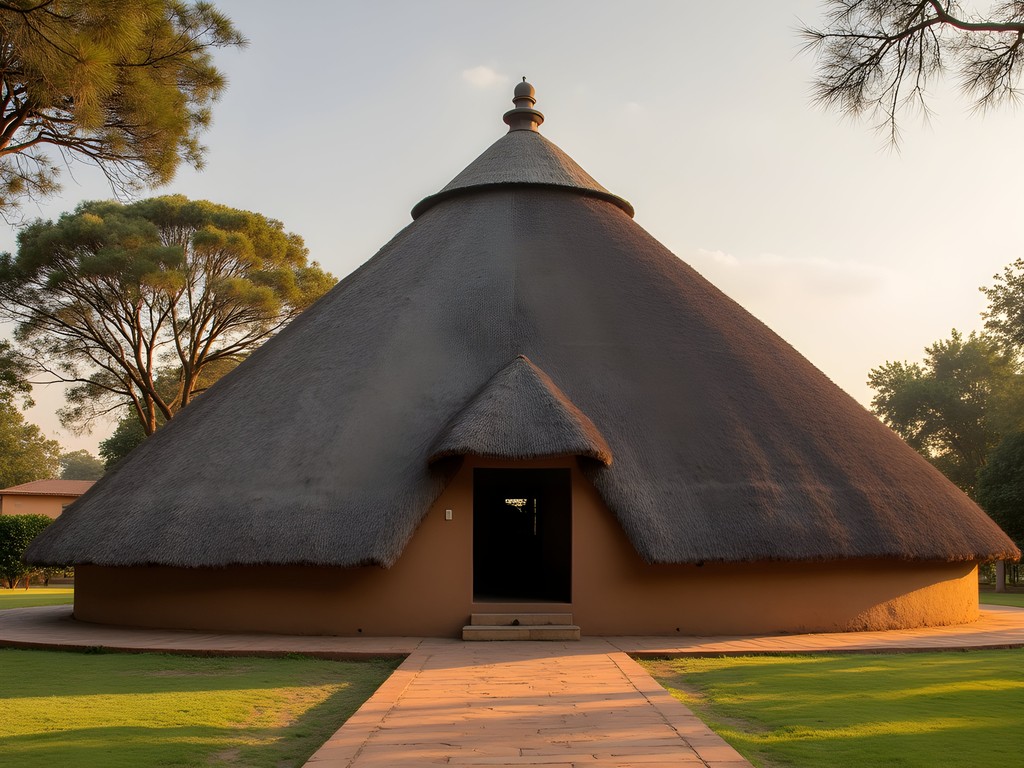
💡 Pro Tips
- Visit in morning hours when traditional musicians often perform
- Combine with a stop at nearby Nyabisindu Market for local crafts
- Wear comfortable shoes as the site involves moderate walking on uneven surfaces
Final Thoughts
As my weekend in Butare drew to a close, I found myself sitting on the veranda of my guesthouse, watching sunset paint the hills in shades of amber that reminded me of Tuscan evenings. What struck me most about this intellectual heart of Rwanda wasn't just its museums or university life, but how seamlessly it weaves together reverence for tradition and forward-looking optimism. For students seeking to understand Rwanda beyond headlines, Butare offers an accessible, affordable window into a culture that values both preservation and progress—values that resonate deeply with my own journey documenting cultural heritage and conservation efforts across continents. Whether you're sketching traditional basket patterns in your journal, engaging with university students over banana beer, or contemplating ancient royal traditions, Butare rewards the curious traveler with authentic connections and fresh perspectives. As I packed my now-treasured agaseke basket alongside my travel essentials, I knew I'd return to explore more of Rwanda's cultural landscape—perhaps next time venturing to the lake regions to document their unique marine ecosystems.
✨ Key Takeaways
- Butare offers an accessible introduction to Rwandan culture beyond the typical tourist circuit
- Student guides provide invaluable insights and contemporary perspectives on Rwanda's history and development
- Hands-on workshops create meaningful cultural exchanges beyond observation
- The university atmosphere creates natural opportunities for connecting with local students
📋 Practical Information
Best Time to Visit
year-round (Rwanda's temperate climate makes any season suitable, though short rains in October-November may affect outdoor activities)
Budget Estimate
$150-250 for a weekend (including accommodation, meals, transportation, and activities)
Recommended Duration
2-3 days (weekend trip)
Difficulty Level
Beginner

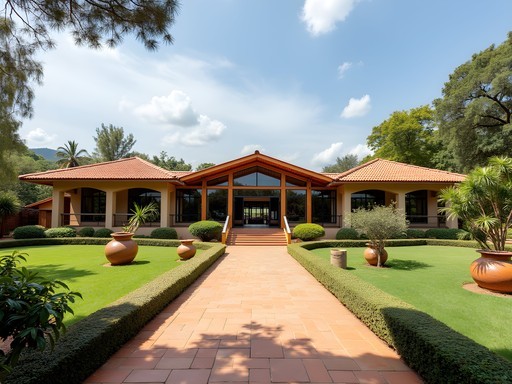
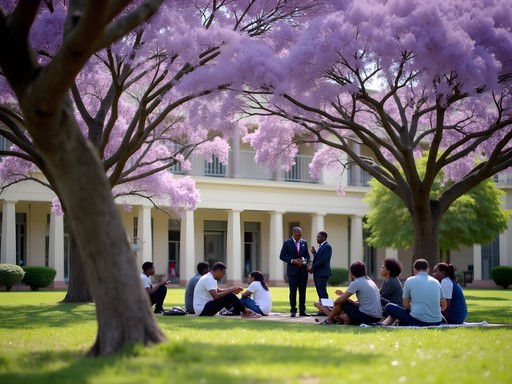
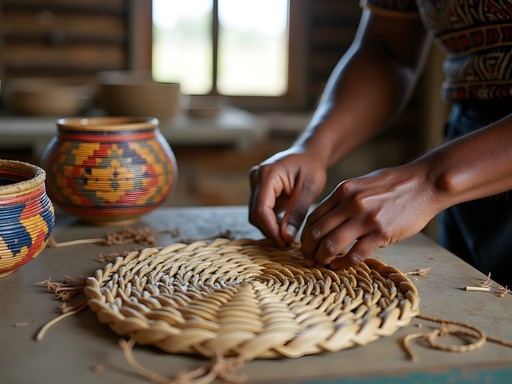
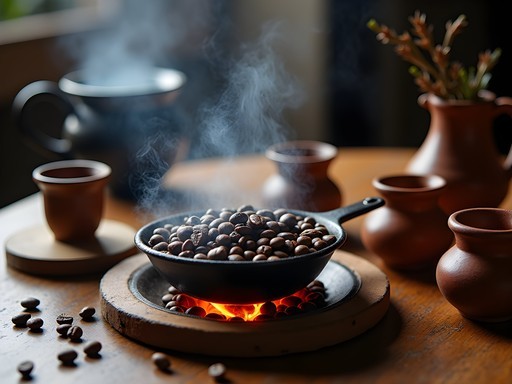
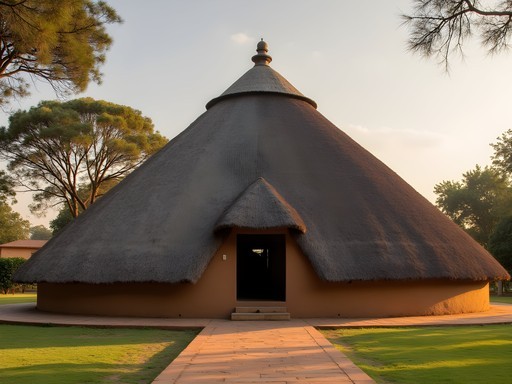


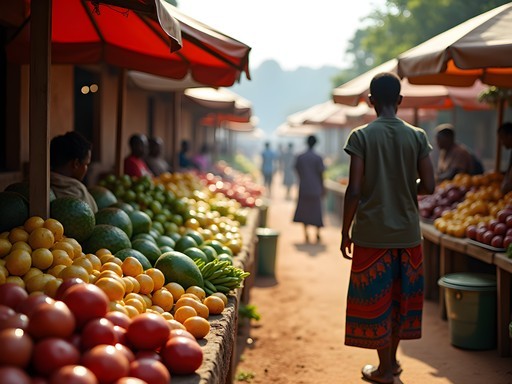
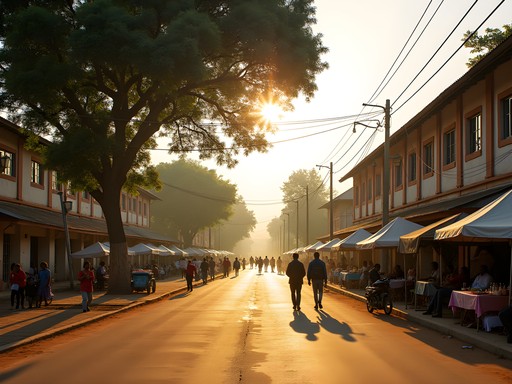

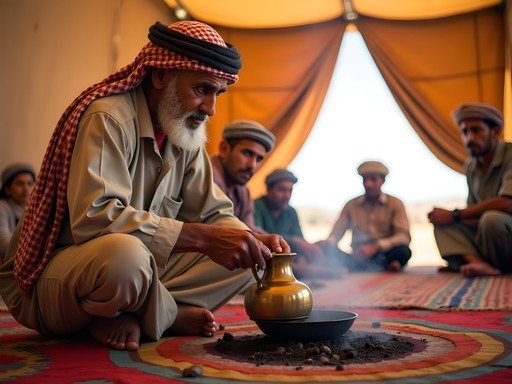
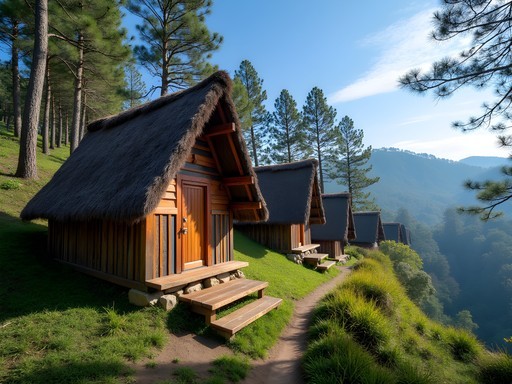
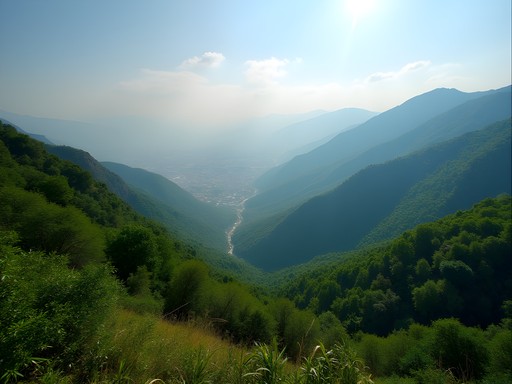
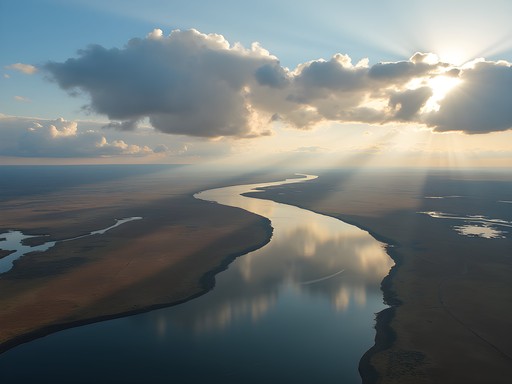
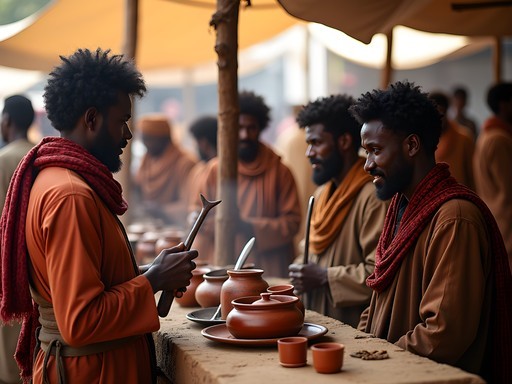
Comments
nomadlover
Is it easy to get around Butare without knowing the language? And how's the internet connectivity for remote workers?
Angela Long
Most people in the university area and tourist spots speak some English, especially younger Rwandans. Learning a few basic Kinyarwanda phrases goes a long way though! Internet is surprisingly good in cafés near the university - I was able to upload all my photos without issues.
coffeeone
I found a language app really helpful for basic Kinyarwanda when I was in Rwanda last year. The locals really appreciated the effort!
backpackqueen4627
Those sunset photos are incredible! Adding this to my travel list ASAP.
Nicole Russell
I absolutely loved Butare when I visited! The University area has such a vibrant energy. One tip I'd add - try to visit the National Museum early on a weekday if possible. I went on a Saturday afternoon and it was packed with school groups. Also, don't miss the small art galleries near the university - there are some incredible contemporary Rwandan artists showcasing their work. I stayed at a lovely family-run guesthouse called Shalom House that was perfect for solo travelers. They even arranged for me to join a community cooking class where I learned to make proper Rwandan isombe (cassava leaf stew). My Rwanda guidebook recommended it and they were spot on!
wandertime
This looks amazing! How many days would you recommend staying in Butare? Is it doable as a day trip from Kigali?
Angela Long
I'd recommend at least 2 full days to really appreciate Butare. While it's technically possible as a day trip from Kigali (about 2.5 hours each way), you'd miss the relaxed academic atmosphere and evening cultural experiences that make it special.
wandertime
Thanks Angela! Will plan for a weekend stay then.
coffeeone
Wow, I had no idea Rwanda had such a rich cultural scene! The National Museum looks incredible in your photos.
Nicole Russell
Right? I was blown away by the National Museum when I visited last year. The artifacts collection is seriously impressive!
coffeeone
Did you do any of the craft workshops Angela mentioned? That's on my bucket list now!
Jean Wells
Angela, your piece captures the intellectual essence of Butare beautifully. Having spent three weeks there researching traditional conservation practices, I found the juxtaposition of academic rigor and traditional knowledge fascinating. The National Museum's archive section (which requires advance permission to access) contains remarkable colonial-era documentation on environmental practices. For those interested in Rwandan cuisine beyond what Angela mentioned, seek out isombe prepared the traditional way - the version at Ibis Restaurant near the university incorporates regional variations not found elsewhere. The culinary workshops at the Cultural Center happen only monthly, so check their schedule before planning your visit. Butare offers a depth that rewards slow travel.
Angela Long
Thank you for these insights, Jean! I wish I'd known about the archive section - definitely on my list for next time. And you're right about isombe variations - the regional differences in preparation tell such a rich cultural story.
coolwanderer
Wow! Just booked my tickets to Rwanda after reading this! Can't wait to explore Butare in January!
backpackone
You'll love it! Make sure to pack a good travel journal - there's so much to document there!
wildking
If anyone's planning to visit, I recommend staying at Barthos Guest House - it's simple but clean, and the owners are incredibly helpful with arranging local guides. Also, don't miss the craft workshops Angela mentioned. I learned traditional basket weaving and still have my (admittedly amateur) creation displayed in my living room! The patience of the artisans with clumsy tourists like me was heartwarming.
mountainguy
How did you get around Butare? Is it walkable or did you need to hire transportation? Planning to visit in December and trying to figure out logistics.
Angela Long
The central area is very walkable! I spent most days on foot. For the craft villages outside town, I used moto-taxis which are affordable and everywhere. Just negotiate the price before getting on.
mountainguy
Perfect, thanks for the tip! Looking forward to exploring on foot.
Savannah Walker
I visited Butare last year and it truly is Rwanda's intellectual heart! The National Museum was my favorite stop - the ethnographic collection is one of the best I've seen in East Africa. Make sure to ask for a guide, they share stories that aren't on the placards. I also stumbled upon a traditional dance performance at the university that wasn't scheduled - sometimes the spontaneous experiences are the most memorable! Did you try the brochettes at that little place near the market? Those tiny hole-in-the-wall spots often have the best food.
Venture X
Premium card with 2X miles, $300 travel credit, Priority Pass